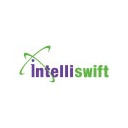Job Description
Location: Redmond, WA
Duration: 12 Months
The client goal is to explore, innovate and design Client interfaces and hardware for the next generation of virtual, augmented, and mixed reality experiences.
We are driving research towards a vision of an always-on AR device that can provide contextually relevant assistance across a range of complex, dynamic, real-world tasks in natural environments. To this end, we are looking for a research engineer with expertise in probabilistic programming to accelerate the team’s research.
The role will include evaluating and implementing models in various probabilistic programming languages (e.g Gen/Julia, Pyro, Stan), baseline published inverse reinforcement learning, inverse planning, and cooperative reinforcement learning algorithms; collaboration and experimentation on Client algorithms and models with researchers; collaboration with engineers to deploy models in AR/VR prototypes; and other related work.
Minimum qualifications
● Experience in one or more of the following areas:
2+ years experience in probabilistic programming, inverse reinforcement-learning, dynamic programming, active/online learning, Markov decision processes or related areas.
● Minimum of 2 years experience with 1 or more probabilistic programming languages (e.g. Stan, Church, WebPPL, Gen), Julia and/or Python (SciPy and other related packages)
Preferred qualifications
● Experience with at least one deep learning toolkit (e.g., PyTorch or TensorFlow)
● Experience working in shared codebases and cluster computing environments
Educational background
Required: BS in computer science, cognitive science, statistics, robotics, or a related field.
Preferred: MS or PhD in computer science, cognitive science, statistics, robotics, or a related field.
